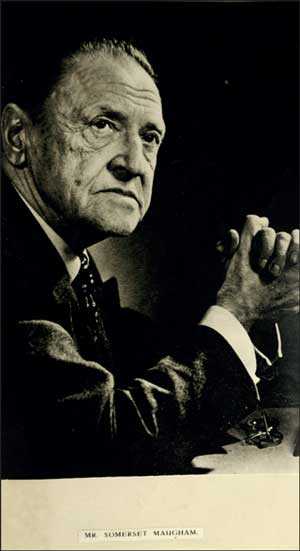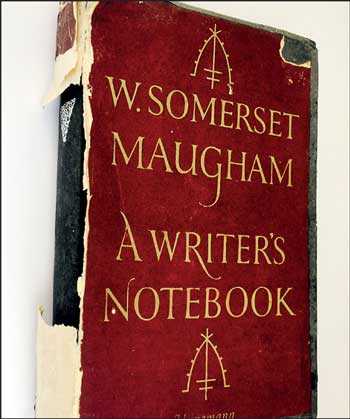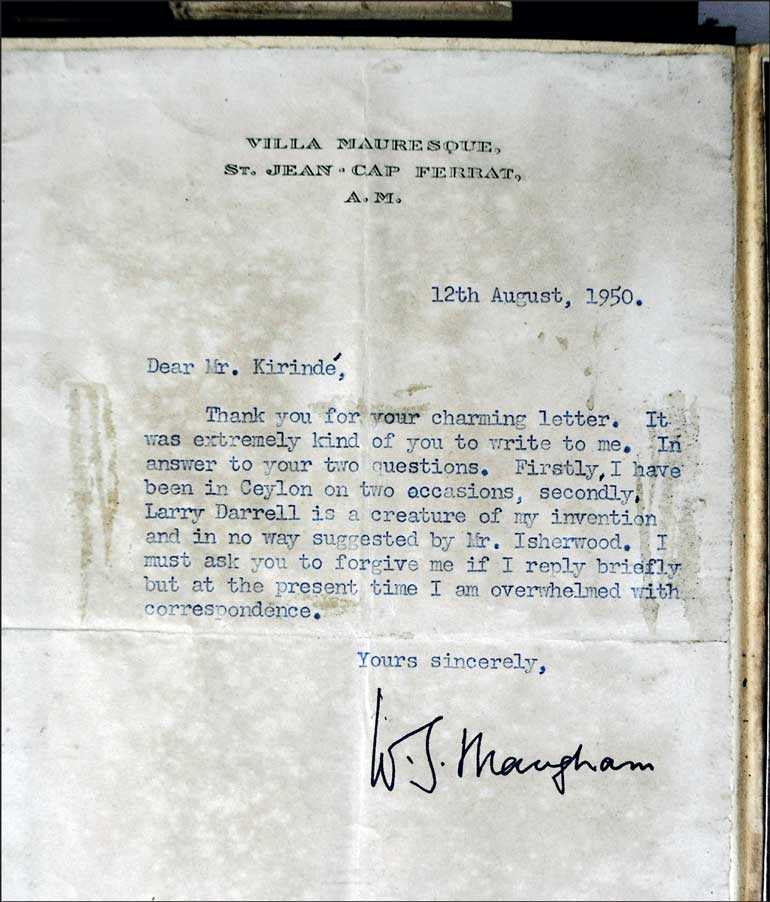Monday Feb 16, 2026
Monday Feb 16, 2026
Saturday, 22 June 2019 00:05 - - {{hitsCtrl.values.hits}}
 By Chandani Kirinde
By Chandani Kirinde
British author W. Somerset Maugham (1874-1965) is among the most celebrated writers of all time. His books including ‘Of Human Bondage’ (1915), ‘The Painted Veil’ (1925) and ‘The Razor’s Edge’ (1944) continue to be some of the most sought-after books till today, decades after they were written.
Maugham had travelled to Sri Lanka (then Ceylon) twice, in the early 1920s and 1930s, before travelling to Thailand and Myanmar, on which countries he wrote extensively in his travelogue titled ‘The Gentleman in the Parlour’.
His books have been popular in Sri Lanka for many years and among the avid readers of his books is a relative who has had the good fortune of receiving a reply to a letter he wrote to Maugham in 1950. I, in turn, have had the good fortune of being in possession of the book in which the letter is pasted on the inner cover.
The relative, an uncle, who is also an avid book collector, was giving way some of his books and decided to present me one by Maugham titled ‘A Writer’s Note Book’. The book contains entries the author has handpicked from the many volumes of notebooks he had collected over the years between 1892 and 1944. The prized letter is pasted on the inner cover of this book.
The letter dated August 1950 had been sent in response to one sent by the uncle to Maugham with two queries. One was, ‘Had the author ever visited Sri Lanka?’ and the other ‘Is the character of Larry Darrell, the protagonist of one of his most popular books, ‘The Razor’s Edge,’ based on the life of (Christopher) Isherwood?’, another leading writer at the time and a close friend of Maugham.
“Thank you for your charming letter. It was extremely kind of you to write to me. In answer to your two questions. Firstly, I have been in Ceylon on two occasions. Secondly, Larry Darrell is a creature of my invention and in no way suggested by Mr. Isherwood,” Maugham said in reply.
The query on the possible connection between Isherwood and the main character in ‘The Razor’s Edge’ had been prompted due to speculation at the time that Maugham was inspired by his friend to create the character.
It has been well documented that Isherwood translated for Maugham the quote with which ‘The Razor’s Edge’ begins. The quote is taken from the ‘Katha Upanishad,’ a section of the early Hindu philosophical texts which dates back to between 1000-400 B.C.
Isherwood had been a follower of Swami Vivekananda and hence studied Sanskrit. The quote contained in the book goes this way: “The sharp edge of a razor is difficult to pass over; thus, the wise say the path to salvation is hard.”

